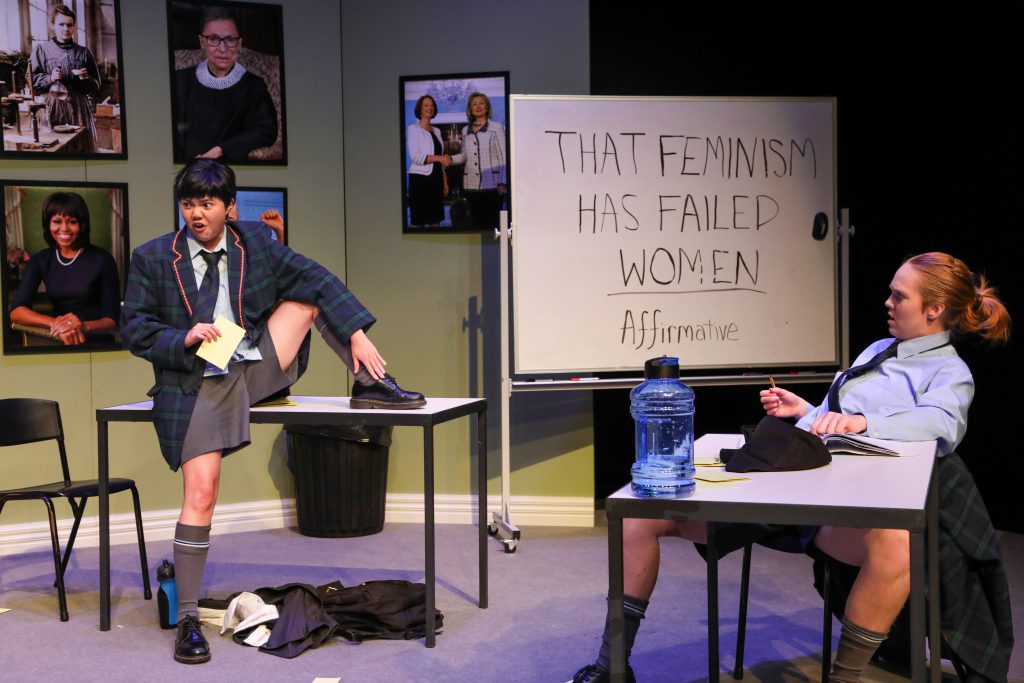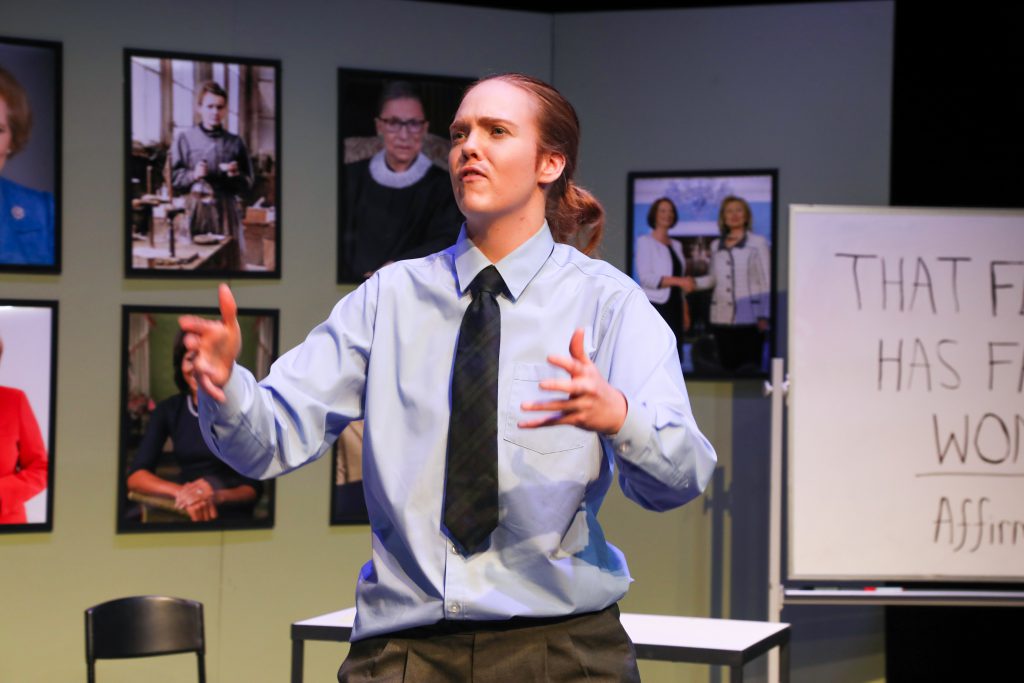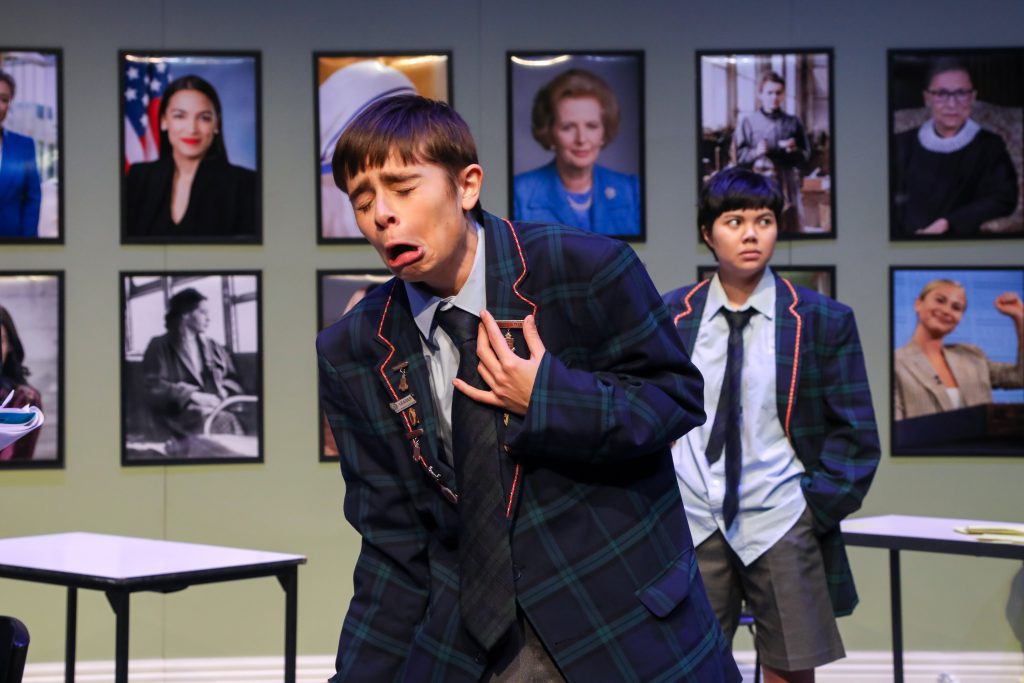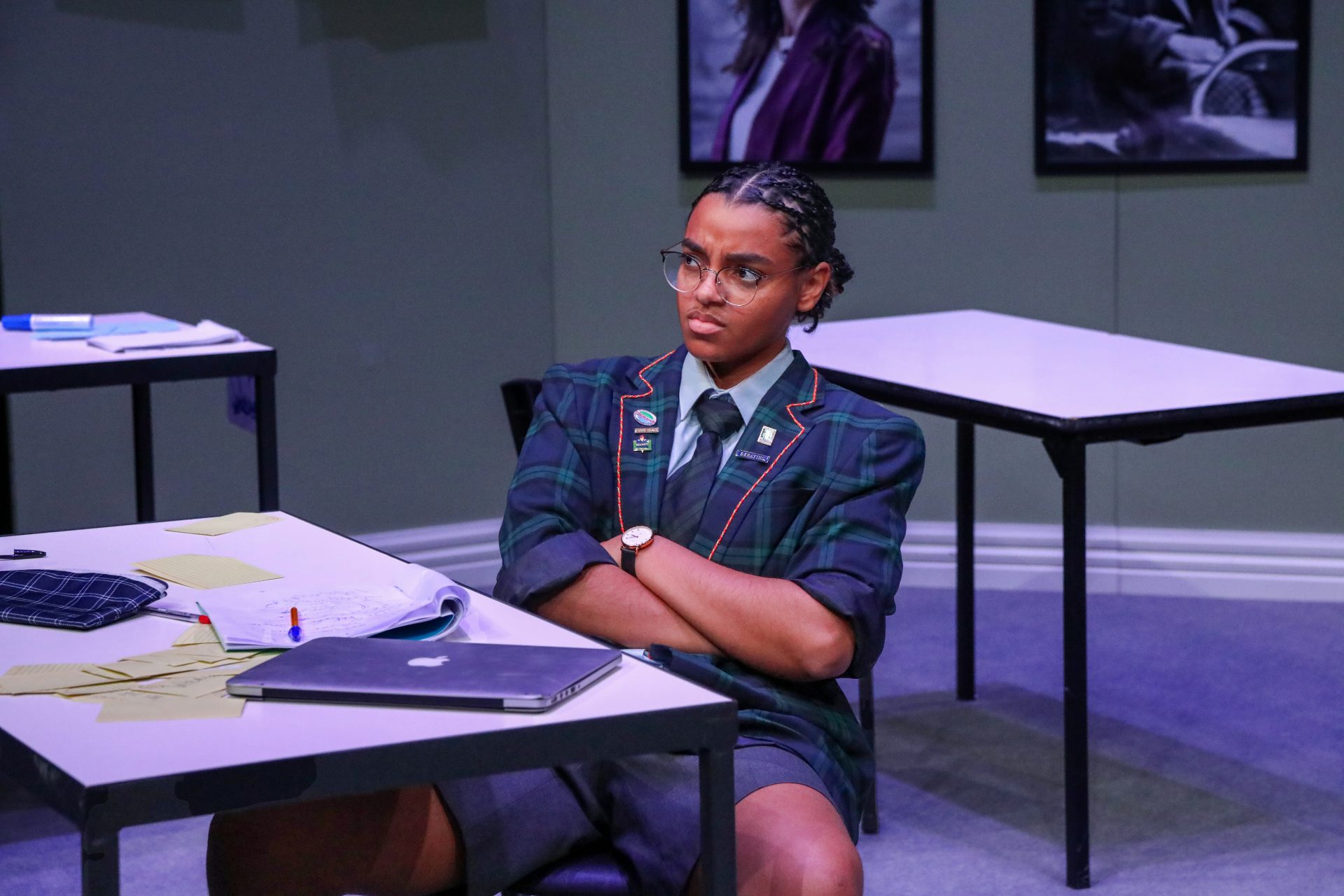Flicking through the pages of the Sydney Morning Herald and the Daily Telegraph, it’s impossible to avoid Sydney’s insatiable desire for scandal, of which our cherished and reviled elite private schools are a rich source.
Trophy Boys, a queer black comedy, leans into Sydney’s schadenfreude and to its credit, manages to reveal the very human face and victims behind these scandals which continually threaten the social license of our single-sex boys’ private schools.

Emmanuelle Mattana’s debut play is set in the aptly named St Imperium College, where a group of four school debaters are engaged in prep for a coveted debating final. The four characters feel like a very believable microcosm of the average boys debating team: the anxious overachieving scholarship prodigy Owen (Emmanuelle Mattana), the beta yes man enabler Scott (Gaby Seow), the privileged yet emotionally undernourished David (Leigh Lule), and the unrepentant alpha Jared (Fran Sweeney-Nash). To their collective horror, the topic for the debate is “feminism has failed women”, for which they are taking the affirmative side. Naturally the optics are not good for the boys debating team. Just as an argument develops to discredit liberal feminism as not going far enough for women, the sudden spectre of a sex scandal threatens to undermine everything.

At its essence, the play flips scandal on its head, where superficial optics dominate and ignore real harm committed. Almost no character is innocent of causing direct harm to young women or lateral harm to other young men. It thereby exposes the hypocrisy of their liberal fragility when being labelled as anything other than feminist or not “loving women”. Playing true to form, this black comedy was frequently comical but unsettling, and managed to maintain this tension to great effect. Through its non-male writing and casting, Trophy Boys also spoke to the positioning of power and those who inhabit it, able to speak a truth rarely told or acknowledged by men, in a world where speaking the truth is often more subversive than the harmful act itself. Altogether this was a powerful play.

Bringing to life the excellent writing was the skilled acting and well executed design. It’s often the little touches which fill out good writing, namely designer Ben Andrews’ clever use of a dozen influential female leaders’ portraits adorning the back wall, outwardly worshipped by the characters with zeal but otherwise disguising a more unsettling truth. The set was otherwise fairly simple with a classroom-like set up which worked well for its purpose. The acting was skilful, particularly with the demands of playing boisterous young men by a non-male cast. Particular credit goes to actors Emanuelle Mattana (who also wrote the script) and Fran Sweeney-Nash who brought to life rich and demanding characters.
It’s easy to see why director Marni Mount‘s play has proven so popular. It is well worth a watch.
